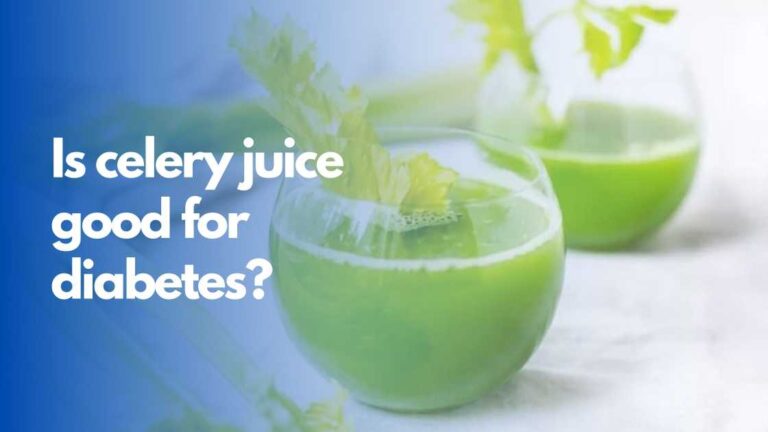About 6% of the world population were living with diabetes in 2014 and this proportion is expected to reach 10% by 2030 because of the rise in the levels of obesity and physical inactivity (World Health Organisation, 2020).
Diabetes is a chronic disease with complications that put health and financial burdens on the affected individuals, their caregivers and society as a whole. If you are reading this article, chances are that you want to know what diabetes is, how to prevent and/or manage diabetes.
No matter where you are in the fight against diabetes, your path to understanding diabetes starts here. In addition, you will get to know whether eating too much sugar causes diabetes.
What is diabetes?
Diabetes mellitus, commonly called diabetes, is a metabolic disease characterised by sustained elevated blood glucose which could be caused by flaws in the secretion of insulin or its effective use in the body.
Insulin is a hormone produced by the pancreas that regulates blood sugar; facilitates its movement into cells to be stored or used for energy. Its defective production or use, therefore, leads to glucose staying in the blood in high amounts and doesn’t reach your cells.
What are the types of diabetes?
The most common types of diabetes are type1, type 2 and gestational diabetes.
Type 1 Diabetes
If you have been diagnosed with type 1 diabetes, it means your body does not produce insulin at all. The reason is your immune system has destroyed the cells in the pancreas that produce insulin.
Type 1 diabetes although can occur at any age, it is usually diagnosed in children and young adults. People with type 1 diabetes need to take insulin every day to stay alive.
Type 2 Diabetes
With type 2 diabetes, your body either does not produce or utilise insulin well enough. This type of diabetes mostly occurs in middle-aged and older people, even though it is possible for younger people and children to acquire it. Type 2 Diabetes is the most common type of diabetes.
Gestational Diabetes
During pregnancy, some women contract gestational diabetes. More often than not, gestational diabetes resolves after the baby is born. However, there is a greater risk of developing type 2 diabetes later in life in women that have had gestational diabetes.
Other Specific Types Of Diabetes
There are other forms of diabetes resulting from conditions that are caused by genetics, other diseases or substance use.
What causes diabetes?
For type 1 diabetes, the exact cause is not known but for some reason, the immune system mistakenly attacks and destroys insulin producing beta cells as stated earlier. Scientists suggest that the virus may set off the immune system attack and implicate some genes in the process.
A combination of genetics and lifestyle factors give birth to type 2 diabetes. This means the condition runs in families that share genes, making them more likely to develop type 2 diabetes and to be overweight.
Being overweight, especially around the waistline is strongly associated with this type of diabetes. Overweight or obesity makes the cells more resistant to the action of insulin.
Gestational diabetes results from hormonal changes during pregnancy where some hormones make a pregnant woman’s cell less sensitive to the action of insulin.
Therefore, both genes and environmental factors contribute to the development of diabetes
Does eating too much sugar cause diabetes?
Taking diets high in sugar have been shown to cause weight gain, which is a risk factor for some chronic diseases including diabetes and cardiovascular diseases.
However, this effect occurs when calories from high dietary sugars are in excess of the body’s requirements, such that the excess is stored as fats, and an increase in weight and resistance to insulin arise. Let us be mindful, however, that all foods consumed have calories, and fatty diets contain more calories than sugary diets of the same weight.
Eating carbohydrate-containing foods, whether high in sugar or starch, temporarily raises blood sugar and insulin levels. The blood sugar-raising effect of a food, called its “glycemic index,” depends on how rapidly its carbohydrate is absorbed. Eating more of high glycemic index food is linked to increased risk of type 2 diabetes.
Sugar sweetened drinks do not satisfy the consumer compared to a whole meal, hence there is an increased appetite to consume more. More sugars, more calories than required, and increased weight can consequently result in increased risk of (type 2) diabetes.
Therefore, there is nothing special about sugar that sets it apart from other foods, and sugars does not cause type 2 diabetes on its own. However, you must avoid too much sugar if you are already at risk of developing diabetes.
What are some of the complications associated with diabetes?
Poorly controlled diabetes can lead to injury to blood vessels. Damage to the blood vessels may lead to cardiovascular diseases such as heart attack and stroke, retinopathy (eye problems including blindness), nephropathy (kidney diseases), and neuropathy (diseases of the neurons such loss of sensation to touch in hands and feet).
Others include foot ulcers, skin diseases of bacterial and viral origin, and dental diseases. Premature death, higher than normal weight at birth, need for caesarean delivery are examples of complications of gestational diabetes.
Is diabetes curable?
Unfortunately, diabetes mellitus cannot be cured but managed. Management aims at slowing the development and/or progression of complications of diabetes. Diet, medicine and exercise interventions augment insulin production, and increase the number of cells or sensitivity to the actions of diabetes.
People with diabetes who are able to adhere to such interventions are able to achieve normal or near-normal blood glucose levels.
How is diabetes managed?
According to the World Health Organisation, the management of diabetes involves changes in diets and physical activities, and the lowering of blood glucose. People with type 1 diabetes require insulin on a daily basis. People with type 2 diabetes can be treated with both oral medications and insulin.
Common prescription medications used specifically to treat type 2 diabetes include gliclazide, glimepiride, glibenclamide, metformin, repaglinide, pioglitazone and vildagliptin. It is a common practice to see people with diabetes take combinations of these medicines.
Blood pressure control, blood lipid (cholesterol) control, and cessation of tobacco use are important to decrease the damage to blood vessels. Foot care in diabetics including maintaining foot hygiene, wearing appropriate footwear, seeking professional care for ulcer management among many others are also encouraged.
Screening and early treatment for retinopathy and kidney diseases as a cost-saving intervention are as well highly recommended.
What measures can help prevent diabetes?
Some risk factors for type 2 are not under our control, for example family history (genes) and age. Type 1 diabetes however, is not preventable because it is caused by the person’s immune system.
Diabetes prevention schemes involve making simple adjustments to your diet and exercise plans. Below are some activities you can do to delay or prevent type 2 diabetes:
- Get at least 150 minutes per week of aerobic exercise, such as brisk walking or cycling.
- Try to reduce or better still, eliminate saturated and trans fats, along with refined carbohydrates, from your diet. Common sources of saturated fat include red meat, whole milk and cheese, coconut oil, and many commercially prepared baked goods and other foods.
- Eat more fruits, vegetables, and whole grains such as beans and oats. They have a lower glycaemic index. .
- Try to lose weight body weight if you’re overweight or obese. Benefits of weight loss have already been discussed above.
Are there home remedies for diabetes?
A variety of minerals, amino acids, vitamins and other supplements may help with symptoms and deficiencies associated with diabetes. Some plant based therapies have been shown to have antidiabetic properties. A few common ones shall be discussed here.
However, certain herbs, vitamins, and supplements may interact with diabetes medications and may end up increasing their hypoglycaemic effects. Therefore always consult your doctor or pharmacist before trying any of these.
Preliminary human data indicates that vitamin E supplements may protect against diabetic neuropathy and nephropathy whereas vitamin C, in addition to improving glucose tolerance, significantly reduces proteinuria (urinary protein loss).
High but variable amounts of Vitamin B6 plus Vitamin B12 have been found to improve diabetic neuropathy but the optimal level of intake remains ambiguous. Also, supplementing your diet with about 4 grams of evening primrose oil per day for six months has been shown in double-blind research to improve nerve function and to relieve pain symptoms of diabetic neuropathy.
Cinnamon, ginseng, bitter lemon and olive leaf by various mechanisms, though not well understood, have been found to reduce elevated blood glucose. Extract of mistletoe sweetened with honey has also been investigated preliminarily, with no clinical trials, and is shown to validate its use in humans.
Conclusion
Getting type 1 diabetes may be out of your control, but not others like type 2 diabetes which can be prevented with healthier food choices, increased activity and weight loss. So now to answer the question, does eating too much sugar cause diabetes, I will say, it depends on the different factors that contribute to the development of diabetes.
References
Basina, M. (2020). Everything You Need To Know About Diabetes. Available at https://healthline.com/health/diabetes.
Centers for Diseases Control and Prevention. (2020). Diabetes Fast Facts. Available at https://www.cdc.gov/diabetes/basics/quick-facts.html
Gaby, A. R. (2006). The Natural Pharmacy (3rd Edition). London. Healthnotes.
Havard Chan (2019). The Nutrition Source: Type of Fat. Available at https://www.hsph.harvard.edu/nutritionsource/what-should-you-eat/fats-and-cholesterol/types-of-fat/
Mahmoud, S. H (2019). Patient Assessment in Clinical Pharmacy. New York. Springer.
National health services (2020). Understanding type 2 Diabetes. Available at https://www.nhs.uk/conditions/type-2-diabetes/
National Institute of Diabetes and Digestive and Kidney Diseases (2020). What is Diabetes? Available at https://www.niddk.nih.gov/health-information/diabetes/overview/what-is-diabetes
World Health Organization (2020). Diabetes. Available at https://www.who.int/news-room/fact-sheets/detail/diabetes







9 Comments